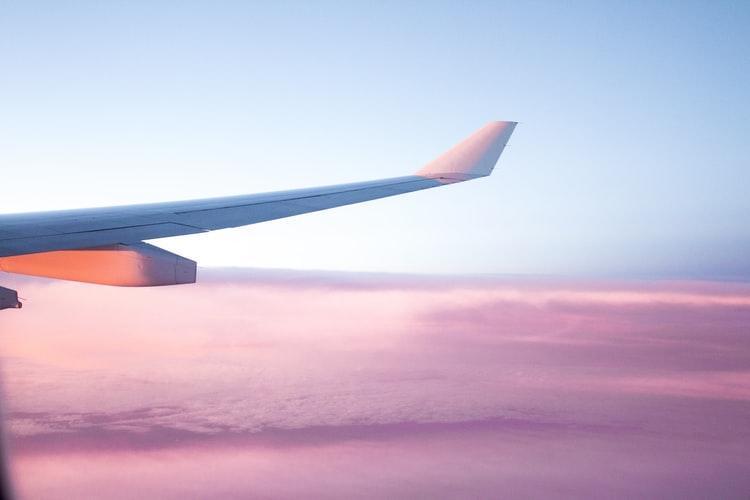Can you run from grief?
Can you run from grief?
Can you run from grief?
The short answer is, no.
There is one thing for certain: We all inevitably die one day. And some of us are faced with the reality of death earlier than others. Each person experience numerous losses throughout their lives. The emotional response to that grief and the subsequent action taken are individual and very much influenced by where that person is in his/her life.
My father was first diagnosed with cancer in 2012 when I was 20 years old. It turned my entire world upside down. My family was in a state of shock trying to wrap our heads around the devastating news. Until that point, I always thought of cancer as something that affects other people, something that happens in other families. You know, heart-breaking stories on the news and the radio, not something you have to come to terms with.
My dad had throat cancer and had his voice box removed, which put him in remission fairly quickly. We actually thought it was over; the battle won. But 2 years later, it came back with a vengeance. In the words of John Green from A Fault in Our Stars: He “lit up like a Christmas tree.” After suffering a seizure at work, my dad was taken to hospital where tests showed that the cancer had spread to his brain and both lungs. The prognosis wasn’t good. We spent months in and out of hospitals, sitting with him while he had chemo and trying to make the time he had left as comfortable as possible.
On 10 February 2016 my dad took his last breath, at home, in a quiet village in the South West of England. It took me a few hours of shock before it sank in and I started to cry; then the crying wouldn’t stop. I resorted to alcohol to numb the pain. For anyone who has lost a parent you will understand the feeling. It’s like half of you has died. I wasn’t very close to my dad, due to him being an alcoholic, but I had a happy childhood and fond memories growing up.
I don’t know what first sparked the impulse. All I wanted to do was run – physically run from my grief, as far away from my hometown as possible. So that’s what I did. At this point I was 23, and I hadn’t left England since I was 13. I took a number of short trips to Spain and within the UK before venturing further afield to India the following year.
I enrolled in an Ancient and Holistic Psychology programme in Bangalore and Mysore. I was working in the mental health sector as a support worker and studying for my Psychology degree with the Open University. I had recently started yoga and this felt like something I wanted to explore further.
I still have vivid memories of that trip and the wonder and awe I felt while exploring the south of India. Everything was so strange, the food was so spicy, the people so inquisitive, the poverty so blatant and in some parts, the caste system so obvious. When I visited the Mysore Palace I cried. Not only because of its beauty but also because I saw an elephant being beaten. At that time, I was suffering from severe anxiety, something that has been present all my life. My dad’s illness and death exacerbated the anxiety. To top it off, I was having an identity crisis, and I didn’t know who I was or what the point of my life was.
Going to India was a turning point. It was like I had been living with my eyes closed and finally they were starting to open. Seeing people who live their lives in such a drastically different way than my life in the UK, truly broadened my mind, increased my awareness of and gratitude for life.
I had a conversation with a girl from London on the placement whose name I unfortunately cannot remember. She had recently converted to Islam. That’s when my interest in the psychology of religion piqued. I wasn’t brought up with religious beliefs as such, so I was intrigued to find out what makes someone choose to be religious. She told me people need something bigger to believe in, to help them wrap their head around things such as grief and poverty. Suddenly the penny dropped and it all made sense to me. The reason I was so depressed about my dad dying was because of my Western belief system, that when someone dies that’s it; they are gone. What if there was something more?
Fast forward to present day. I’m writing this in a coffee shop in Hanoi, overlooking the beautiful Westlake on a warm autumn day. In February 2021 it will be five years since my dad passed away. In those five years I have travelled to eight countries, I volunteered in Sri Lanka for four months helping people with mental illness and nearly one year ago I quit my corporate job to move to Vietnam.
I can honestly say that losing my dad has helped me to develop and understand myself in so many ways. My dad loved to travel so I know he would be proud of me. Of course I miss him, and I wish cancer hadn’t taken him so soon. But everything in life happens for a reason. And in my grief, I managed to find my passion in life, for travelling and for helping people.
Thank you for your comment Ashley!
This article is so honest and heartbreaking. You're really really strong!
